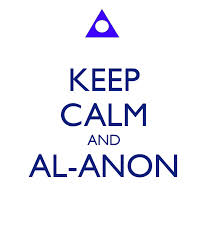At some point each Christmas morning the telephone rings
and hearing the phone I think happily, “Oh, that’s Larry
calling to say Merry Christmas”-- as was his habit for
twenty-some years since we left home in our teens. Then
smiling, rising from chair or bed to reach for the phone, I
drop my hand. I remember. This cannot be Larry calling;
Larry is dead.
I am the youngest of five and have watched as my older brothers and sisters became ill. I was the caregiver to my brothers as they went through long illnesses and then died. For one brother I was the nearby, hands-on caregiver, for the other I was the long-distance, travelling caregiver. Both versions are hard.
One of the things I have learned going through this kind of loss so many times is that there is surprisingly little consideration for siblings as caregivers and siblings as mourners. Siblings are not considered primary mourners; they are expected to assist the primary mourners: parents, spouses and children and then get on with their own lives. But sibling illness and death is often more traumatic because of it’s very unexpectedness.
When I began this education in caregiving I was taking care of my brother Larry, and soon after his illness began my brother Sigmund was diagnosed with ALS. I was beside myself with grief and also with logistics. It took a long time to find my role and my voice with doctors and in hospitals and with all the related support staff. I can marke my learning how to be a caregiver with each visit to the hospital with Larry—and there were so many.
What also helped me enormously were two books by sibling caregivers. First, “Landscape Without Gravity” by Barbara Lazear Ascher—who in 1993 wrote about taking care of her 31-year-old brother Bobby who was dying of AIDS. She writes of his care, understanding his
relationships and then the grief—collective, familial and personal that consumed her.
Le Anne Schreiber’s book, “Midstream” was written earlier but came to me later. Schreiber writes of sharing caregiving duties with her brother as they care for and prepare for their mother’s death. Her book is more of a journal, that depicts the interplay of siblings—back and forth—as
the caregiving duties mirror Schreiber’s love of fishing for trout.
The love and pain of brother and sister in that book brings back to me my appreciation for a condolence note that I still cherish.
She wrote:“The loss of a brother is so terrible because we played with them and fought with them and expect to have our children do the same with theirs, and we expect them to be there and to help us when it is time to bury our parents. Losing a brother is losing both your past and your future.”
I remember when I was in the first grade learning about The United States from one of those wall sized maps that are common in elementary classrooms, the ones that show each state as a different color, and I remembered the first time we went on a family vacation and how disappointed I was that all that distinguished the next state was a sign saying, “Welcome to Ohio” and Ohio was not blue as my classroom map had shown.
I was older, but similarly disappointed when, after my sister Joyce died, I discovered that the stages of grief that I’d always read about were not clearly recognizable. Instead I found that I could be angry and happy and sad and in and out of denial and find acceptance and then be depressed all over again. I believe that it is our fear of death that makes us want to organize grief, make it shape up, get in line and have specific manageable moments.
“I am so sorry about your loss”. I always thought that “losing a loved one” was a euphemism used by people who were afraid to say the word “dead”. But after losing my brother Larry I know that “lost” is not a euphemism but the perfect word to describe the feeling that follows a death.
Though he died years ago, my feeling about Larry is that I have misplaced him; It’s that
sensation of knowing that my book or my glasses are around here somewhere…if I could just
remember where I left him. There is a sense of something just out of reach, still here, but
also gone.
I think this is why we are so hard on the grieving. The world loves closure and to have
things sealed and settled. But death and grief are not as final as we would like.
This is why it is a great surprise to find that grief contains such a broad range of expression.
What I have learned is that death ends a life but not a relationship. And that is why, on
Christmas mornings, I still rise and reach for the phone.
***************
The Literature of Caregiving is an occasional series on this blog. See other entries on
December 8, 2014, January 16, 2015, February 17, March 23rd, and May 1st 2015.







